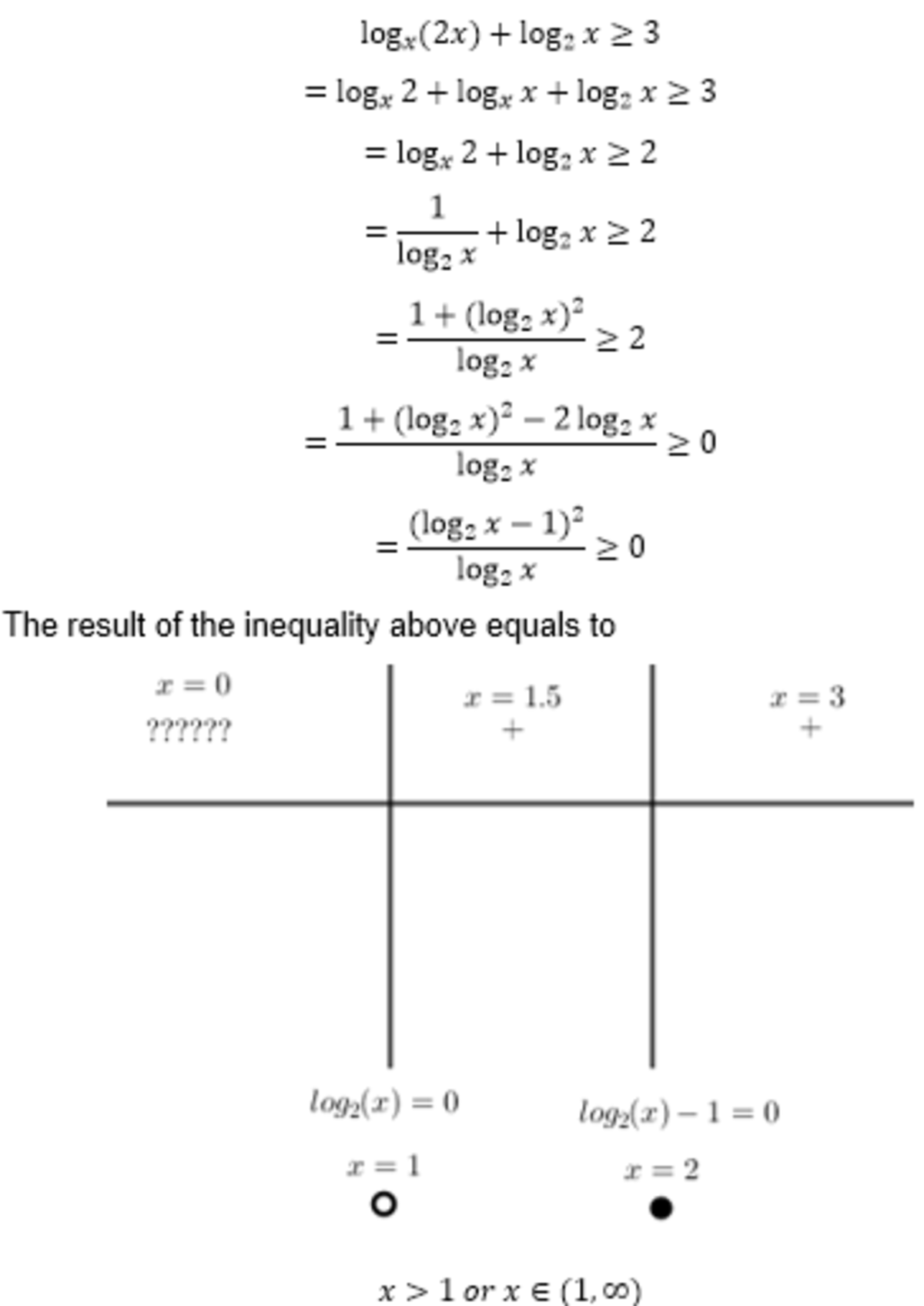Why is in there?
The inequality above has a solution in the form . Find the value of
The answer is 1.
This section requires Javascript.
You are seeing this because something didn't load right. We suggest you, (a) try
refreshing the page, (b) enabling javascript if it is disabled on your browser and,
finally, (c)
loading the
non-javascript version of this page
. We're sorry about the hassle.

l o g x ( 2 x ) + l o g 2 ( x ) ⩾ 3
l o g x ( 2 ) + l o g x ( x ) + l o g 2 ( x ) ⩾ 3
l o g x ( 2 ) + 1 + l o g 2 ( x ) ⩾ 3
l o g x ( 2 ) + l o g 2 ( x ) ⩾ 2
l o g x l o g 2 + l o g 2 l o g x ⩾ 2
l o g x l o g 2 ( l o g 2 ) 2 + ( l o g x ) 2 ⩾ 2
now a=log x and b=log 2
a b a 2 + b 2 ⩾ 2
if a>0 then x > 1 and
a 2 + b 2 ⩾ 2 a b
if a<0 then 0<x<1 and
a 2 + b 2 ⩽ 2 a b
continuing with a>0
a 2 + b 2 − 2 a b ⩾ 0
( a − b ) 2 ⩾ 0
therefore for a>0 a can be anything (and requires x>1)
but for a<0 a cannot be real
therefore the domain of x is (1, +inf)